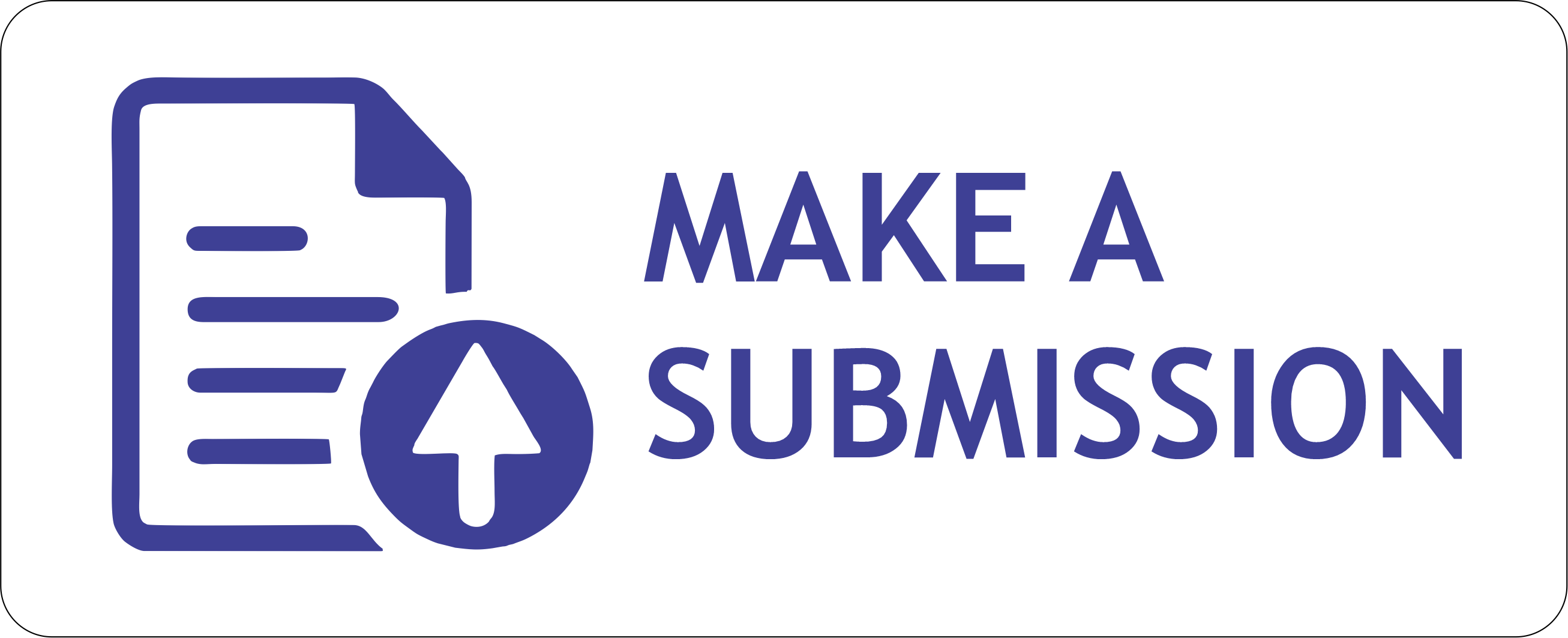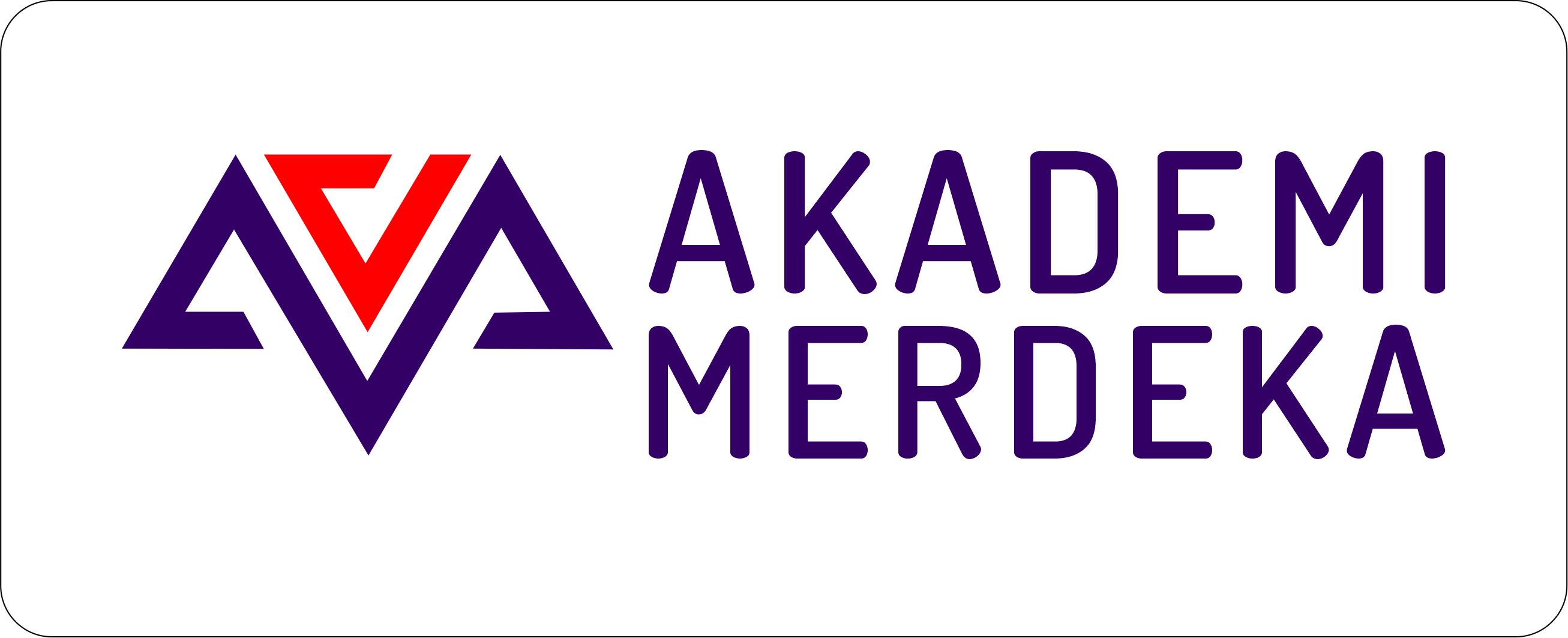MAKE A SUBMISSION

ABOUT
TEMPLATE

INDEXING SITE

SUPPORTING TOOLS


COLLABORATION

INFORMATION
FLAG COUNTER
CITATION METRICS
Authors must meticulously review the journal's policies and standards prior to manuscript submission and prepare the paper in accordance with the specifications outlined on this page. All manuscripts must be submitted autonomously via the online submission system. Manuscripts submitted over email or in bulk will not be accepted. Manuscripts must be composed in English, featuring a clear and succinct narrative. Non-native English authors are strongly advised to have their manuscripts reviewed by a proficient language editor. Should the text exhibit linguistic inaccuracies that hinder readability, the author will be requested to revise it. Either British or American spelling may be employed, as long as it remains consistent throughout the book. Non-standard abbreviations must be explicitly declared upon their initial usage. Each contribution must include the following files:
Manuscript Text: This document constitutes the principal section of the paper, encompassing the title, author names, affiliations, email addresses, and ORCID identifiers. The manuscript's length varies between 4000 and 9000 words, inclusive of the bibliography.
Similarity Report: Authors must submit plagiarism verification results indicating a maximum similarity rate of 20% via the Turnitin application upon manuscript submission. This condition pertains to the criteria established by academic institutions, publications, or research organizations, stipulating that the degree of similarity in scientific work must not surpass 20%.
Authors must utilize the Microsoft Word template and comply with all rules specified within it when preparing the manuscript. Should revisions be requested for the manuscript's potential acceptance, authors must submit the revised manuscript accompanied by written responses to the comments from the editors and reviewers.
Manuscripts, supporting papers, revisions, and galley proofs of accepted manuscripts are submitted exclusively via an online submission system. We anticipate responses from authors at each stage. Occasionally, the email server may direct communications transmitted over the system to the spam folder. To ensure they don't miss manuscript status updates and other communications, authors need to regularly check their spam folders.
Manuscript Guidelines
All submitted manuscripts must be organized systematically and consist of the following sections. Authors are required to strictly adhere to the structure and writing rules outlined below to ensure clarity, consistency, and academic rigor.
Introduction
The Introduction must provide a comprehensive background to the research topic, outlining its broader context and significance. Authors should clearly define the research problem and explain why it is important from theoretical and/or practical perspectives. A concise review of relevant prior research must be included to demonstrate the current state of knowledge and identify research gaps.
The novelty of the study must be explicitly stated. Authors should articulate the urgency of the research problem, outline expected contributions, and conclude the section with clearly stated research objectives. Where appropriate, explicit research questions or hypotheses should be formulated. The Introduction should be logically structured and approximately 1000 words in length.
Literature Review
This section should critically examine and synthesize relevant theories and previous studies related to the research topic. It must establish the conceptual and theoretical foundation of the study and explain how the current research builds upon, extends, or differs from existing work.
Authors should identify inconsistencies, methodological limitations, or unresolved issues in previous research and clarify how their study addresses these gaps. The Literature Review should reflect analytical depth rather than a mere summary of sources.
Methods
The Method section must provide sufficient detail to allow replication of the study. Authors should clearly describe the research design, participants or data sources, sampling techniques, instruments, data collection procedures, and data analysis methods. Any validation and reliability procedures must be explained where applicable.
Methodological decisions must be justified and supported by relevant references. Ethical considerations and approvals should also be stated when necessary.
Results
The Findings or Results section presents the outcomes of the study in direct relation to the research questions or hypotheses. Results must be presented objectively and systematically without interpretation.
Tables and figures may be used to summarize key findings. However, the narrative text should highlight important patterns or trends rather than repeat numerical data. Tables must follow consistent formatting standards. All tables and figures must be clearly labeled and referenced in the text to ensure clarity and coherence.
Discussion
The Discussion section must interpret the findings in relation to existing theories and prior research. Authors should explain similarities or differences between their results and previous studies and discuss theoretical, practical, or policy implications. This section should demonstrate critical analysis and clearly articulate the contribution of the study to the advancement of knowledge. Study limitations must be acknowledged, and recommendations for future research should be provided.
Conclusion
The Conclusion summarizes the principal insights derived from the study and aligns them with the research objectives. It should not introduce new data or references. The conclusion may consist of one cohesive paragraph or three to five concise paragraphs. Authors should emphasize the originality, significance, and potential applications of the findings.
Acknowledgment
Authors may acknowledge funding bodies, institutional support, or individuals who contributed to the study but do not meet authorship criteria. Grant numbers should be included where applicable.
References
All cited sources must be listed in the References section. Authors should prioritize reputable international journals and authoritative sources. The reference style follows APA (7th edition). Reference management software such as Mendeley, Zotero, or similar tools is recommended. All references cited in the text must appear in the reference list, and vice versa.
| # | Country | Visitors |
|---|---|---|
| 1 |
United States
|
420 |
| 2 |
Singapore
|
231 |
| 3 |
United Kingdom
|
174 |
| 4 |
Indonesia
|
136 |
| 5 |
Canada
|
111 |
| 6 |
France
|
51 |
| 7 |
Vietnam
|
46 |
| 8 |
Brazil
|
26 |
| 9 |
China
|
20 |
| 10 |
India
|
16 |
| 11 |
Unknown
|
15 |
| 12 |
Denmark
|
11 |
| 13 |
Poland
|
10 |
| 14 |
Germany
|
9 |
| 15 |
Japan
|
8 |
| 16 |
Ecuador
|
7 |
| 17 |
South Korea
|
7 |
| 18 |
Ireland
|
5 |
| 19 |
Philippines
|
5 |
| 20 |
Italy
|
5 |
| 21 |
Australia
|
5 |
| 22 |
Bangladesh
|
4 |
| 23 |
Russia
|
4 |
| 24 |
Hong Kong
|
4 |
| 25 |
Spain
|
4 |
| 26 |
Iraq
|
4 |
| 27 |
Ukraine
|
3 |
| 28 |
Mexico
|
3 |
| 29 |
Thailand
|
3 |
| 30 |
Türkiye
|
3 |
| 31 |
Uzbekistan
|
3 |
| 32 |
Colombia
|
3 |
| 33 |
Taiwan
|
3 |
| 34 |
Cyprus
|
2 |
| 35 |
Finland
|
2 |
| 36 |
Kazakhstan
|
2 |
| 37 |
Moldova
|
2 |
| 38 |
Argentina
|
2 |
| 39 |
Kenya
|
2 |
| 40 |
Pakistan
|
2 |
| 41 |
Libya
|
2 |
| 42 |
Malaysia
|
2 |
| 43 |
Switzerland
|
1 |
| 44 |
Algeria
|
1 |
| 45 |
Guatemala
|
1 |
| 46 |
Iran
|
1 |
| 47 |
Senegal
|
1 |
| 48 |
Belgium
|
1 |
| 49 |
Chile
|
1 |
| 50 |
Czechia
|
1 |
| 51 |
Israel
|
1 |
| 52 |
Sri Lanka
|
1 |
| 53 |
Sweden
|
1 |
| 54 |
South Africa
|
1 |
| 55 |
Egypt
|
1 |
| 56 |
Honduras
|
1 |
| 57 |
Jamaica
|
1 |
| 58 |
Cambodia
|
1 |
| 59 |
Barbados
|
1 |
| 60 |
Ghana
|
1 |
| 61 |
Jordan
|
1 |
| 62 |
Morocco
|
1 |
| 63 |
Panama
|
1 |
| 64 |
Portugal
|
1 |
| 65 |
Slovakia
|
1 |
MATCHA: Journal of Modern Approaches to Communication, Humanities, and Academia
Published by CV. Akademi Merdeka
(eISSN: 3090-6245)
Copyright © 2025-2026, All rights reserved.
This is an open-access article licensed and distributed under the terms of the Creative Commons Attribution-ShareAlike 4.0 International
![]()
This work is licensed under a Creative Commons Attribution-ShareAlike 4.0 International
